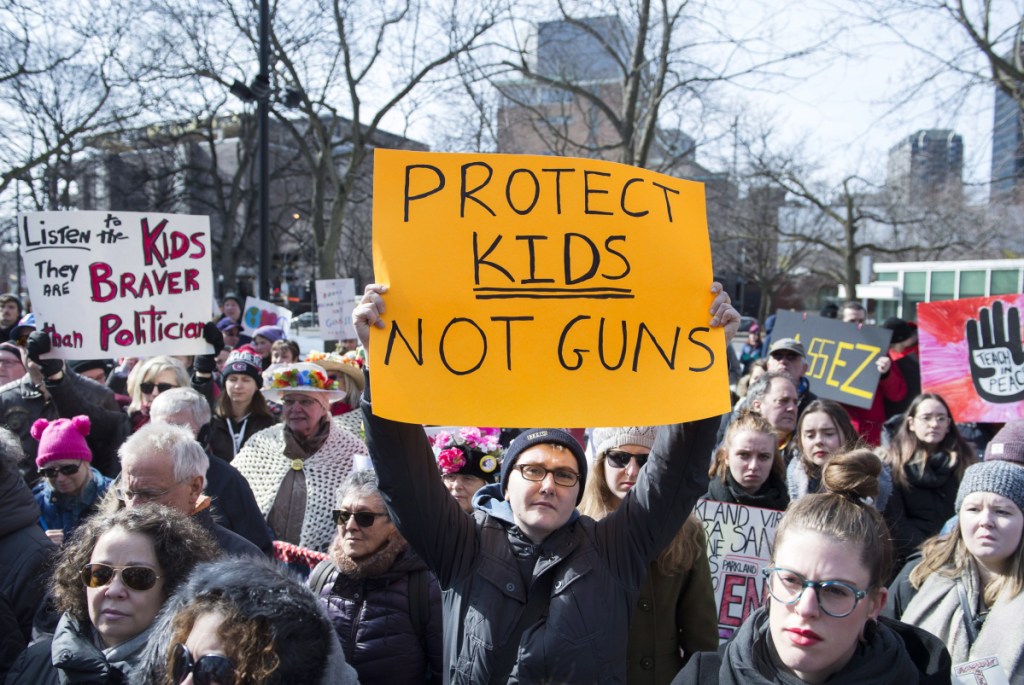OTTAWA — In a scene more common in Canada’s neighbor to the south, a shootout at a Toronto bowling alley last weekend left a suspected gang member dead.
A 29-year-old woman was caught in the crossfire and later died at a hospital.
For a country proud of its largely peaceful streets and much lower levels of gun violence than in the United States, a recent rash of gang-related shootouts has captured public attention and reignited calls for stricter gun controls.
Prime Minister Justin Trudeau’s government is heeding those calls, announcing a proposed law that would require more detailed background checks for gun owners and force retailers to maintain records of gun sales for at least 20 years.
The move comes as the United States is grappling with the fallout from the school shooting last month in Parkland, Florida, that left 17 dead and prompted a renewed wave of legislative efforts to tighten gun laws.
It also sparked the March for Our Lives, which attracted hundreds of thousands of teenagers and adults to protests against gun violence in Washington, D.C., and cities across the country Saturday.
Canadian Public Safety Minister Ralph Goodale, who proposed the gun-control legislation last week, has pointed out, using official government statistics, that gun-related homicides in Canada are “up by two-thirds” since 2013. He recently convened a special guns and gangs summit in Ottawa to map out possible actions to counter the trend.
The minister’s claim of sharply higher gun crime has since been challenged by criminologists and statisticians, who argue that 2013 was a year with the lowest homicide rate in almost 50 years and that the overall rate of firearm homicides is up but not dramatically so.
Firearms are already much harder to acquire legally in Canada than in the United States, and the frequency of gun-related violence is markedly lower. But there is a long tradition of hunting and firearm ownership, particularly in rural parts of the country.
The previous Conservative government successfully courted the pro-gun constituency and in 2012 dismantled the decade-old firearms registry for rifles and shotguns, which was criticized by opponents as a waste of money and an intrusion into their right to hunt and shoot. Mandatory registry of handguns and other “restricted” and “prohibited” weapons remained in effect.
The Trudeau government’s proposal would force all firearms vendors to maintain records and inventories of transactions and keep those records for 20 years. The records would be accessible to police only if they first obtain a warrant.
Goodale said the government did not intend to revive the scrapped firearms registry and is proposing a system similar to the record-keeping required of gun sellers in the United States.
But Sheldon Clare, president of the National Firearms Association, the most outspoken of Canada’s gun-owner groups, called the move the start of a process of “civil disarmament” and a backdoor path to a new government registry system.
“It’s another unnecessary set of firearms-control regulations and a regime that will have nothing whatsoever to do with preventing any crimes,” Clare told a radio station in Vancouver.
The legislation would also require the Royal Canadian Mounted Police, which issues firearms licenses, to examine a person’s entire life for potential problems, including criminal convictions.
The current requirement mandates a five-year background search.
Send questions/comments to the editors.



Comments are no longer available on this story